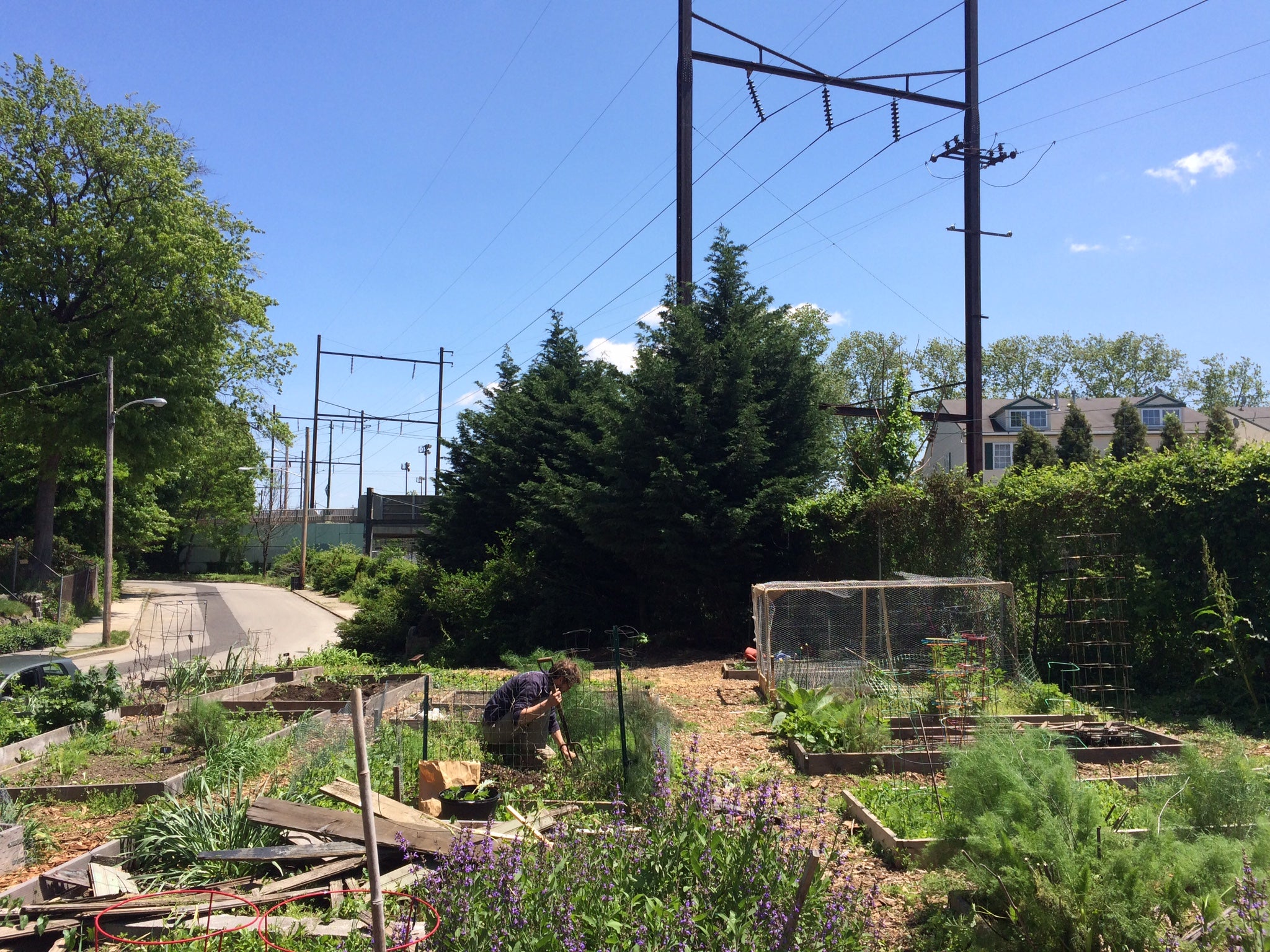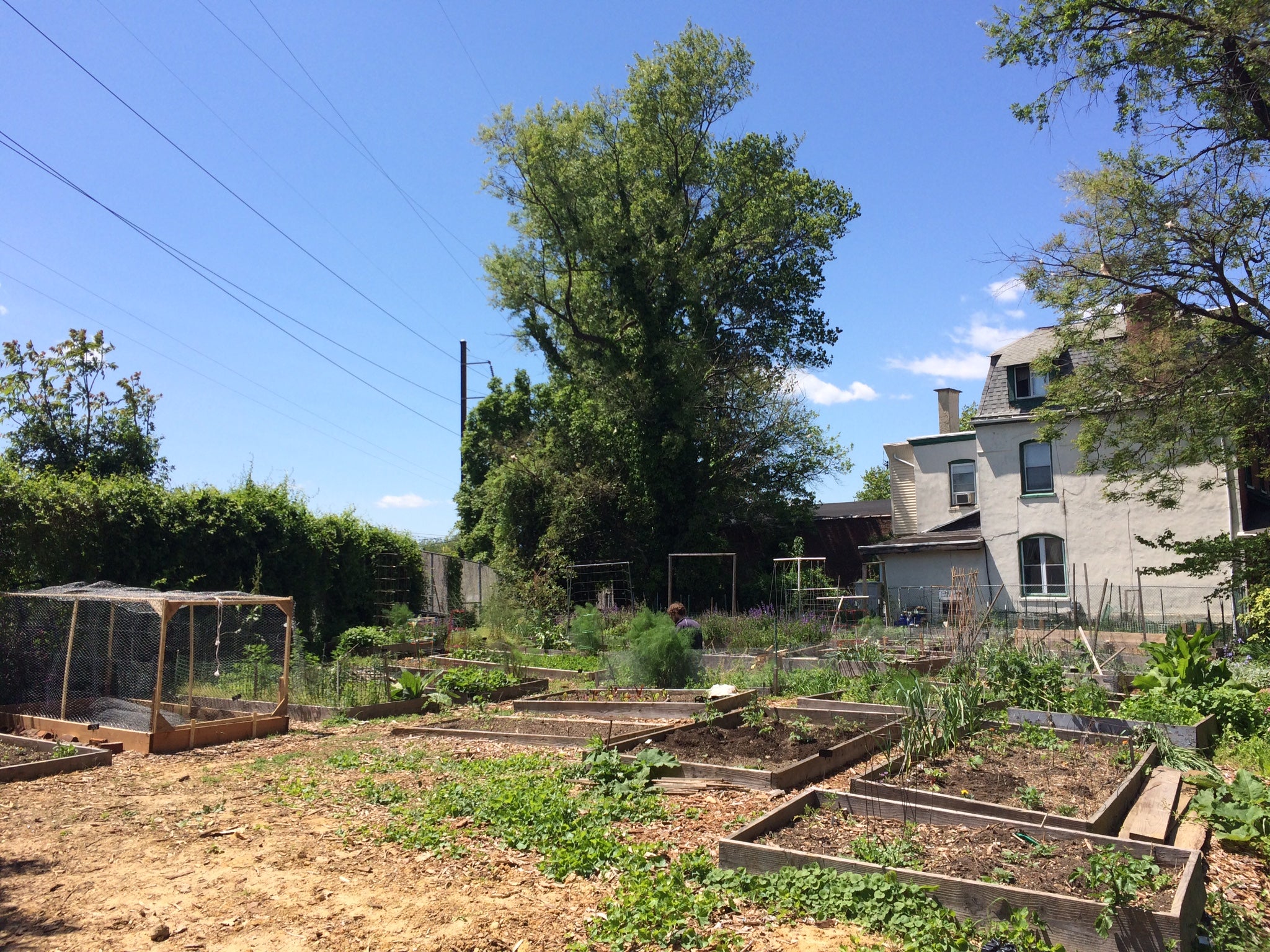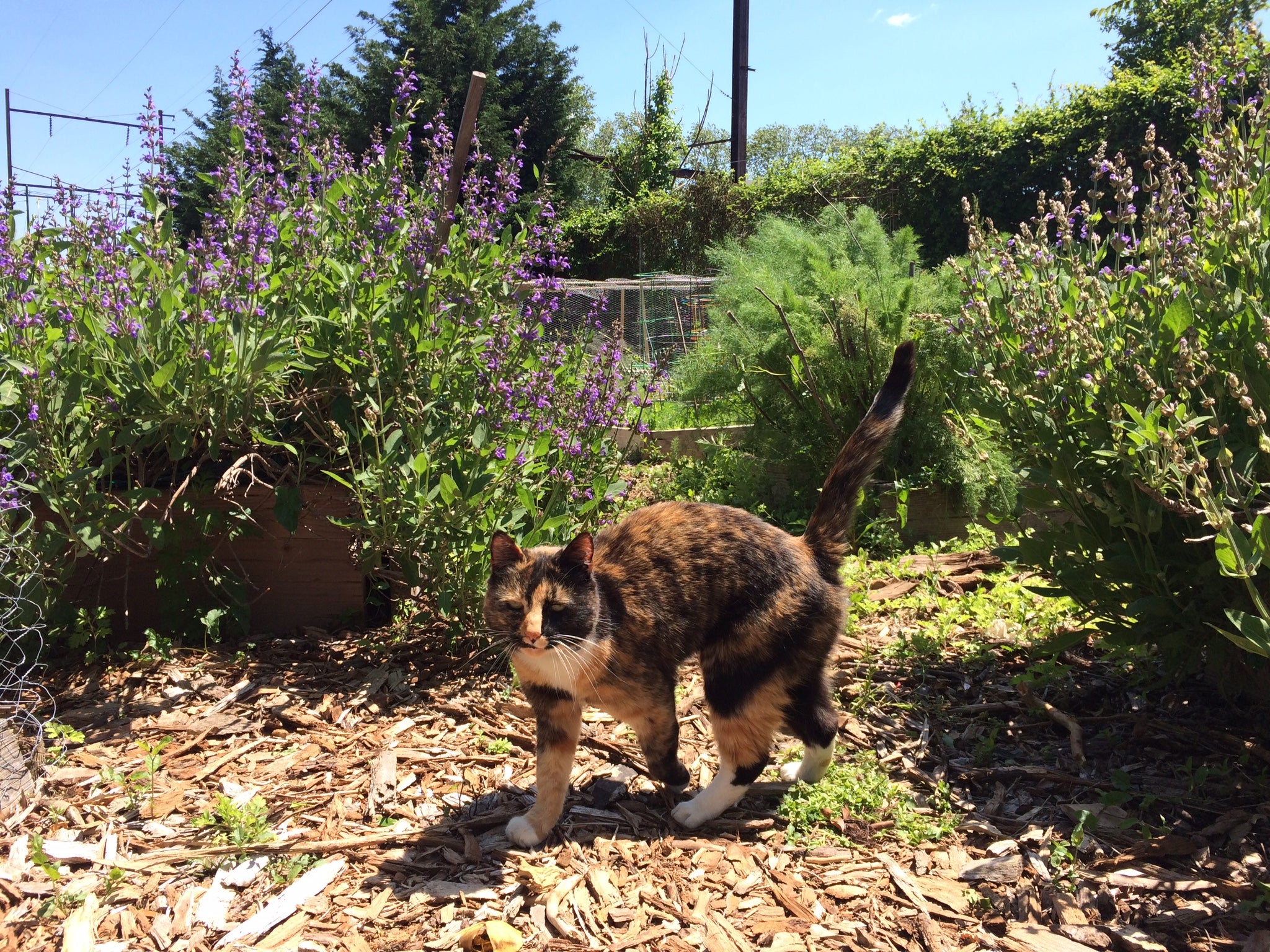After dodging sheriff’s sale, community gardens look ahead to the Land Bank

Two long-tenured community gardens in West Philadelphia are breathing a temporary sigh of relief.
For the second time in a few years, St. Bernard Community Garden in Cedar Park has narrowly evaded the hands of developers at sheriff’s sale — as has Holly Street Community Garden, located less than two miles away in West Powelton. One lot from each multi-parcel garden was slated to hit the auction block this week, but Councilwoman Jannie Blackwell intervened on each garden’s behalf.
“I better intervene. You know how long these people have been working for these gardens?” Blackwell said Monday.
Blackwell says she’ll continue to keep the gardens from going to sheriff’s sale until a long-term solution can be found. The city’s new Land Bank would be a means to clear title on the garden lots and transfer ownership. But Blackwell said that she’s skeptical of transferring properties to the Land Bank at the moment, and it’s too early to tell if she’ll transfer properties to the Land Bank as it becomes fully operational.
“We’re going to determine the best vehicle to get the gardens out of this state of tax delinquency and into the hands of the gardeners,” said Paulette Adams, the director of community development in Blackwell’s office.
The councilwoman first intervened on behalf of St. Bernard in 2012 when one of the two privately owned parcels that makes up the garden was headed to sheriff’s sale. Gardeners at St. Bernard raised more than $10,000 to bid on this little slice of earth tucked off of Springfield Avenue, but they couldn’t compete with deep-pocketed developers. Real estate around St. Bernard’s was already in demand, with single-family homes regularly listing for over $300,000. In these cases, the City can bid on private properties using the amount of money owed in back taxes. But in a rare gesture, Blackwell’s office saved the garden with a last-minute bid of $71,500 — far exceeding the $47,000 in delinquent taxes.
That parcel has since been protected by Neighborhood Gardens Trust (NGT), a nonprofit land trust that owns and preserves 34 community green spaces in the city. NGT is one of the few pathways to legal land control for community gardens, but its reach only stretches so far. The Garden Justice Legal Initiative estimates that there are 400-500 gardens and farms in the city, and is collecting data to revise that count.
“There has been no attempt to create a proactive systemic approach to preserving the at-risk gardens while we wait for things like the Land Bank to get in place. There is nothing protecting these gardens in the meantime. They’re getting picked off,” said Amy Laura Cahn, director of the Garden Justice Legal Initiative at the Public Interest Law Center.
Three years ago, Farm 51 at 51st Street and Chester Avenue was also threatened with losing one its two lots at sheriff sale. But that lot is one among many in limbo, waiting for a court judgment. There are a number of multi-parcel gardens just like Farm 51 and St. Bernard that have secured land rights for portions of their space, but not all.
“We’re one of dozens if not hundreds of community gardens that still don’t have the protection they need,” said Phil Forsyth, a gardener at St. Bernard and the director of the Philadelphia Orchard Project.
Back in 2004, the nearby Sloan Street Community Garden was forced to relocate its 20-some beds after a developer purchased its land at sheriff’s sale. Absent political backing, St. Bernard and Holly Street might have met a familiar fate this week.
Winnie Harris knows the story all too well.
“People have gardened here for years and years and years,” she said. “We wanted the land before anyone else wanted it. And now just because University City is a hot real estate market, you want to build in every open space? I don’t think that’s right. I think the people that were there first should get preference.”
Harris been tilling soil in the area since she was a student at Drexel back in the 1980s, and managing the Holly Street Community Garden since its birth 12 years ago. This most recent sheriff’s sale evasion is just another chapter in a storied decade of land disputes.
Of the garden’s four parcels wedged between rowhouses on N. Holly and 41st Streets, one is being pursued through an inheritance claim, Harris says. (Inherited properties with decades of delinquent taxes are but one of the many reasons these lots become abandoned and blighted in the first place.) A real estate company purchased one of the parcels in 2004, according to city records. The lot remains undeveloped, but that could change in a heartbeat.
On top of the land rights headache, Harris says the garden costs between $3,000 and $5,000 a year to maintain, much of which she pays out of pocket.
“If I could claim the garden as a dependent, I’d be okay,” she joked. “You don’t have to spend $150 to lay on somebody’s sofa for an hour and tell them your problems, you can just garden it out.
The Garden Justice Legal Initiative at the Public Interest Law Center, launched the Grounded in Philly website partly to highlight the few but fruitful pathways to legal land access. The most obvious is to raise money for a competitive ownership bid. But in desirable neighborhoods, gardens still might end up like St. Bernard’s gardeners. Back at the 2012 sheriff’s sale, they tried to persuade developers not to compete for their at-risk lot. Forsyth said that two of the developers with whom they spoke with bid on it anyway.
It is possible to purchase publicly-owned lots through a number of public agencies, such as Philadelphia’s Housing or Redevelopment Authorities. For privately-owned lots, some gardens have hashed out a land-use agreement with the owner.
For those who have been operating continuously on private property for at least 21 years, there is also the possibility of adverse possession — as South Kensington’s La Finquita farm did in March. The Garden Justice Legal Initiative’s director Amy Laura Cahn notes that conservatorship and adverse possession could be used more widely, but absent a proactive approach to clear past debt for pro-community projects, it’s not the easy path.
The Land Bank, created in late 2013 to speed up redevelopment of vacant and blighted properties, could fill a much-needed role here. Once it gets off the ground, that is.
In 2015, it launched a pilot program to review 600 tax delinquent properties for acquisition through tax foreclosure. To date, about 1,500 properties have been transferred into the bank, most of which are in North and South Philly. But just two Land Bank properties have been approved for conveyance to private owners.
Cahn says that St. Bernard Garden was on this initial pilot of 600 properties. Yet somehow, that lot was still pushed to sheriff’s sale for its delinquent taxes.
Once the Land Bank is operational, it won’t necessarily solve all of the woes of community gardens seeking land ownership. Nonprofits and community groups will still be competing with developers for properties. Although urban agriculture and gardens are goals in the Land Bank’s plans, district councilmembers can still use their councilmanic prerogative to halt any property transfer to the Land Bank in their district.
Any of these lots could very well be pushed to sheriff’s sale again. Blackwell says that she hasn’t promised to move any community gardens into the Land Bank. She said that it’s still too new for her to trust its process.
Pried for an alternative land-ownership model for community gardens, she added “we’re going to have to work with private people, public people, community people. We’re going to have to work with everyone we can.”
WHYY is your source for fact-based, in-depth journalism and information. As a nonprofit organization, we rely on financial support from readers like you. Please give today.







